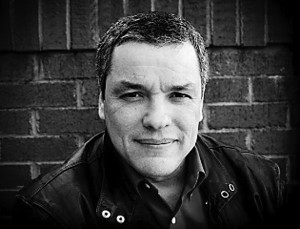Most of us remember when Paula Deen used racial slurs and sexist comments about one of her employees of color in her restaurant in Southern Georgia. While still an issue, this overt racism is not the heart of the problem in the American discussion on race. The heart of the problem is the systematic approach that this kind of racism occurred within.
The scapegoating of one person, Paula Deen in this example, is an attempt to push the blame off of ourselves. We want to say that she is bad and we are good. We want to distance ourselves from the actions that have occurred because we don’t think that we would have acted in that way. But really, we shouldn’t be asking why she reacted that way or why she said the things that she said. Instead, we should be asking how we, as a society, produced someone who could act and talk in that way.
So how did we? Perhaps it’s because I, and everyone I know, is racist. Let me make it clear that this is not me pointing my finger at you and casting blame. I don’t think that each and every one of us live in such a way that screams such apparent racism. Instead, this is me putting my arm around your shoulder and asking you to reflect with me on society, on the systematic racism that we live inside of.
Our society is filled with covert racism. This is subtle, and it is sophisticated. It can take the form of racially biased decisions and hidden discrimination that is deep within the fabric of our society. This prejudice is often unnoticeable on the surface or done in a passive way, then it is rationalized through explanations that our fragmented society can accept.
Drew Hart, in his book The Trouble I’ve Seen, comments on the way white society stigmatizes people of color. He states overt racism, like Paula Deen incident, isn’t the deep-rooted problem. The problem is we isolate incidents like this and fail to acknowledge the larger pattern running throughout society. There are patterns in the ways those in authority are suspicious of and target people of color. There are patterns in the tragic killing of youth of color, from before 1980 all the way up to the present. There are patterns in the way we think white youth who do drugs are “just trying it out,” but youth of color are instantly thought of to be a threat.
We need to think about the way we come into these conversations, to remember they are not used to build ourselves up and tear down others. We need to come into the dialogue with an open mind and, along with that, we need to stay aware of our biases and slowly start to rewrite them.
Further in his book, Hart gives an example of a conversation he had with his white pastor. His pastor told Hart that the cup between them had writing on either side of it and they needed to share with each other what was written on the other to fully understand each other’s perspectives. Hart dismisses this idea saying he already knows about his pastor’s point of view because it was all he was ever taught growing up.
Talking about our whiteness doesn’t help the privilege that comes with being white. Hart’s pastor didn’t enter into communication with an open-mind, he came in with an idea about how he could be a potential white savior to the hurt that could come with hearing Hart’s story. Then, he would tell his and try to make the playing field equal. The playing field is not equal. Until white America can move past their side of the cup, the one that is preached from every angle, and see the ways our society is hurting others in the body of Christ, we cannot move forward.
Jesus chose to be with the minorities. He sat among people that were different from him and called us to love our neighbors as ourselves. We need to be intentional about the love and unity we build in our communities, we need to agree that black lives matter, all of them, and we need to consciously battle the subtle racism and implicit biases we have wired into our society.
Although I cannot claim to know the answer to such a loaded conversation, I do know that reconciliation is possible and that we as believers are called to a ministry of reconciliation. So go offer a seat at your table and rewrite the biases in your life.
And I urge you: love your brothers and sisters well. Listen to their side of the story, not to gain anything for yourself, but to understand that their pain is valid and their voices are worth hearing too. Then, by hearing their hurt and victories, notice the similarities and celebrate the differences.

